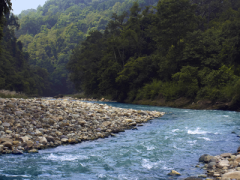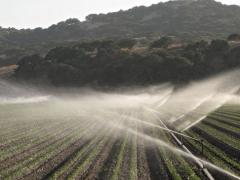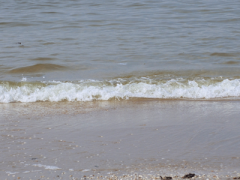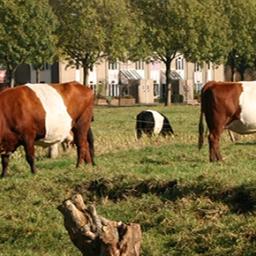Evaluation Manure and Fertilisers Act 2016: Synthesis Report
At least once every 5 years Dutch Parliament receives a report about the efficiency and the effects of the Manure and Fertilisers Act. In the report it is concluded that the manure policy has not improved the Dutch water quality substantially in the past 10 years.
According to the Manure and Fertilisers Act Dutch Parliament receives a report about the efficiency and the effects of the Act at least once every 5 years. This is that report: the Evaluation Manure and Fertilisers Act 2016 – covering the period 2006-2014.The main report and background information is only available in Dutch. A summary and the main findings are also available in English.
The evaluation report concludes that more efficient fertilisation and fighting manure fraud will offer a perspective on reaching the nitrate target. A region-specific approach can also help. Decreasing the nutrient loading of the surface water, for reaching the Water Framework Directive targets, cannot be combined with regular agriculture in some regions.
10 years of application limits stabilised the manure problem, but offers no solution
The nitrate concentrations in water leaching from agricultural soils and the nitrogen concentrations in regional surface waters mainly fed by agricultural soils significantly decreased during the past 10 years. But this decrease is now stagnating. Exceedance of the limits is largest in the southern sand region in the Netherlands and under arable land on sandy soils.
The summer averaged phosphorus concentrations in the regional surface waters have not decreased significantly. In the period 2007-2014 the limits for nitrogen and phosphorus were exceeded at about half of the measurement points, on average by a factor of 2.
Sufficient trading opportunities for manure surpluses, but high pressure on manure market remains
Livestock farms have to remove half of the manure produced on their farms. In 2016 more than a quarter of the manure had to find a destination outside Dutch agriculture. Processing and export of manure products is balanced with the increase of the request for manure sales outside agriculture. The costs for this are reasonably stable and are mainly with the pig farmers.
The strong dependency of the export to Germany is a matter of concern.
Agricultural task for the WFD requires a different approach for the manure problem
At least reducing the phosphorus load of the regional waters from agricultural soils by half is needed. In Southern Netherlands and in the clay and peat area of Central Netherlands a reduction of the phosphorus load of the regional waters from agricultural soils by at least half is needed to reduce the concentrations to levels related to a ‘good status’ in 2027 according to the Water Framework Directive.
The Water Framework Directive targets require a different and more region-specific approach of the manure problem in these problem regions and seem not to be achievable everywhere in the Netherlands.
Authors
Specifications
- Publication title
- Evaluation Manure and Fertilisers Act 2016: Synthesis Report
- Publication date
- 26 September 2017
- Publication type
- Publication
- Publication language
- English
- Product number
- 2779




